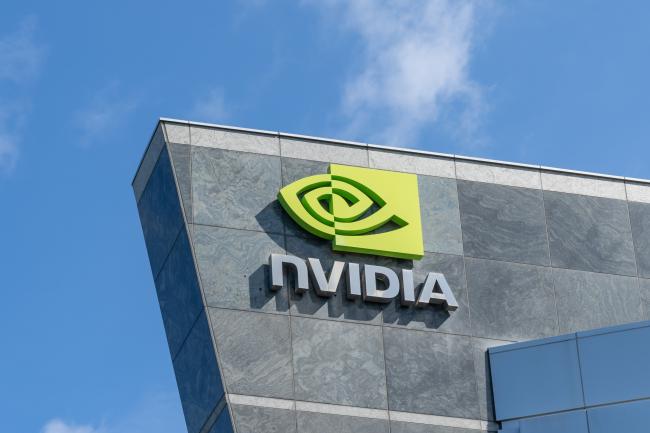This week, tech company NVIDIA hosted its GTC Student Experience event at Howard University, and representatives provided the campus community with insight into how the tech entity is revolutionizing and advancing AI with its HBCUs partnerships.
During the Oct. 27-29 NVIDIA GTC Washington, D.C., the company organized a two-day event on Howard’s campus. Students received free gear from the exclusive NVIDIA Gear Store truck Oct. 27. The broader campus community was invited to take part in a day-long NVIDIA-sponsored event Oct. 28 that included the “How to Accelerate Your Career in AI” panel discussion featuring Howard faculty, alumni, and representatives from NVIDIA. The day also included a watch party of the GTC keynote livestream with NVIDIA CEO Jensen Huang. Additionally, Howard students were invited to participate in the company’s on-campus “Agents for Impact” Hackathon.
U.S. Rep. Ro Khanna, who represents California’s 17th Congressional District in Silicon Valley, delivered opening remarks at the NVIDIA-Howard event Oct. 28 in Blackburn Center. He emphasized the significance of tech companies partnering with HBCUs during this AI boom.
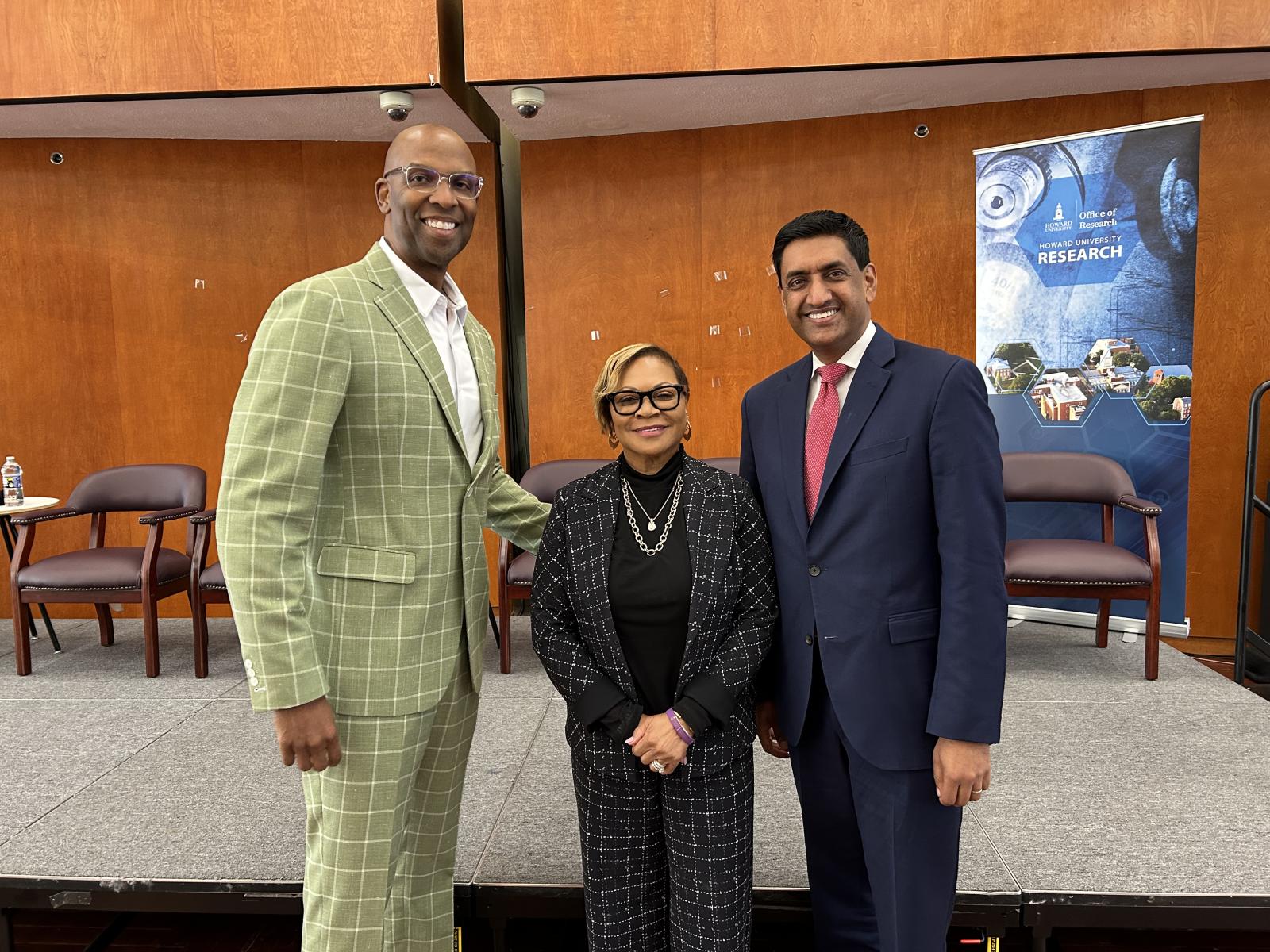
“There’s so much ambition, talent, passion, and interest in technology at HBCUs, and there needs to be a partnership with technology companies,” said Khanna. “One of the premiere tech companies and Howard, one of the premier HBCUs, merging — this is a partnership that can be exciting for the entire country. Shame on us if Black Americans don’t participate in the digital revolution, not just as creators and users but as the actual architects of the technology and profiting from the technology.”
Growing the AI Ecosystem at HBCUs
NVIDIA designs chips, known as graphics processing units (GPUs), that largely power the AI industry. The tech corporation recently became the first company to hit $5 trillion in market value. During NVIDIA CEO Huang’s keynote address, he announced several major initiatives on how the company is planning to power the AI era, of which includes its new partnerships with telecom firms T-Mobile and Nokia to build “AI-native” 6G cell phone towers. Marchon Jackson (M.B.A. ’03), Howard’s interim vice president for research, explained how the university’s researchers are using NVIDIA products and platforms across several initiatives.

“Howard researchers are already using NVIDIA’s powerful platforms to accelerate discovery in AI, data science, and computational modeling,” said Jackson. “As we continue to grow our AI ecosystem, we look forward to expanding that partnership with NVIDIA, and we look forward to bringing this into our research activities, training, and innovation. NVIDIA’s leadership and high-performance computing and GPU technologies changed how researchers approach everything from precision medicine to quantum science, and at Howard we share a belief that technology must serve humanity.”
Jackson made note of Howard’s research centers and programs that are leveraging AI technology, such as the Research Institute for Tactical Autonomy; the Institute for Human-Centered Artificial Intelligence; the Center for Applied Data Science and Analytics; and the NIH-funded Advance Health Equity and Researcher Diversity program.
Dr. Allison Bryant, Howard’s vice president of corporate relations and an associate professor of information systems and supply chain management, expanded on why NVIDIA’s partnership with the university is essential.
“Today is the embodiment of the excitement of the future of technology. NVIDIA is showing their commitment to partnership and in this environment, we don’t take that for granted,” said Bryant during the event on Tuesday. “At Howard, we’re not just keeping pace with these changes, but we aim to lead, and we’ll do so by participating in partnerships like this. As a premiere institution, Howard is dedicated to ensuring that all voices, data, and experiences of modern-day communities help to shape those AI systems.”
A Career in AI
During “How to Accelerate Your Career in AI,” Dr. Gloria Washington, associate professor of computer science, discussed how she and her students are working to create next level technology with Project Elevate Black Voices. The project, in collaboration with Google, aims to improve the experience of Black people using automatic speech recognition (ASR) technology by building an expansive dataset of African American English (AAE) to reduce racial disparities within ASR. The team traveled across the country to places such as Louisiana, the Bay area, New York, Chicago, Mississippi, and Alabama to collect more than 800 hours of data.
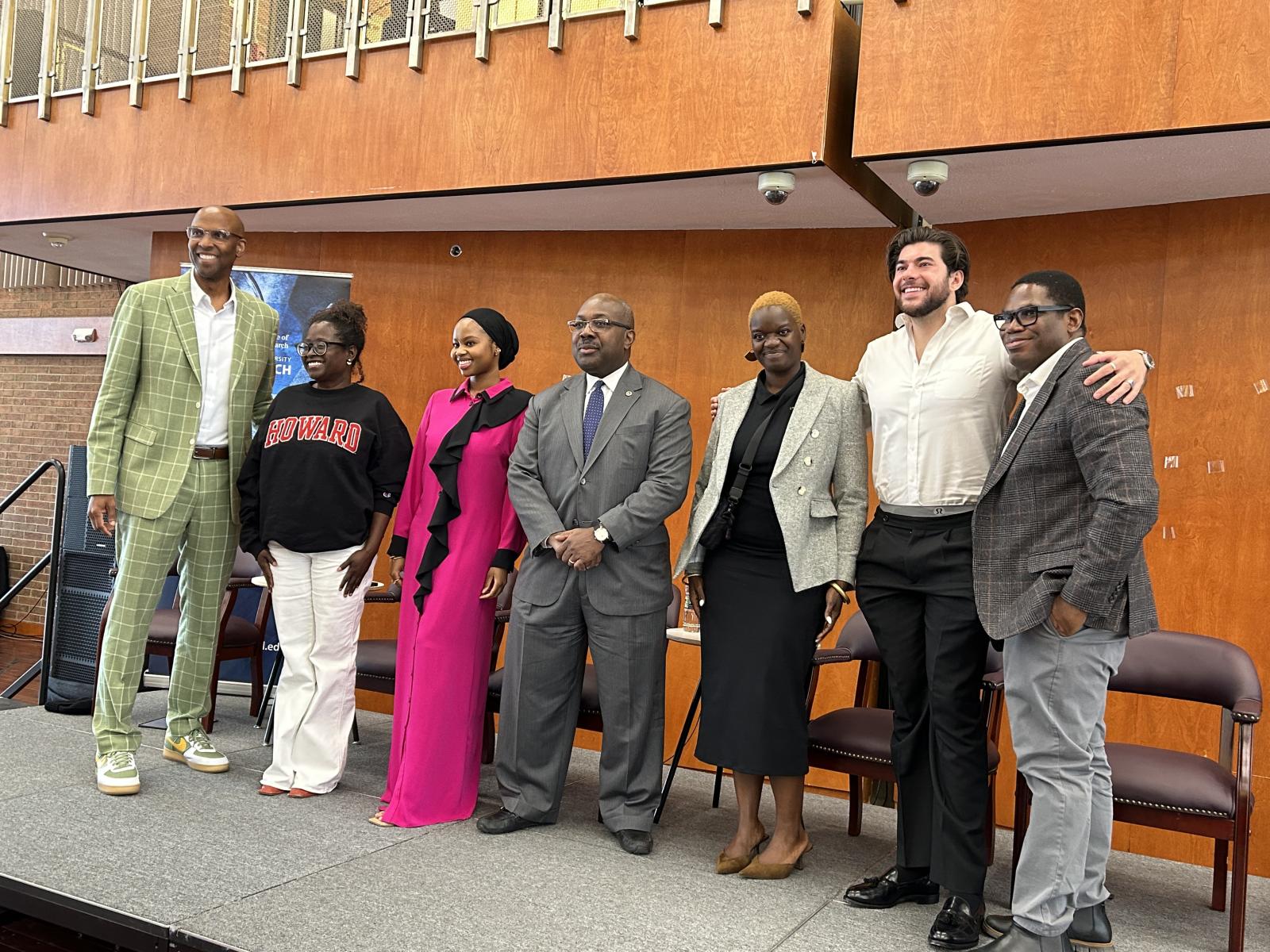
“It started out as an undergraduate research problem that trickled into an innovation,” said Washington, co-investigator of the project. “We had to invent the ASR technology to solve the problem. Because the voice assistant technology couldn’t understand different dialects of AAE, like my southern twang or different aspects of how we talk, we had to go around the country to collect different dialects. Hopefully, this will lead towards more collaboration with larger tech industries and have licensing for use of this data.”
Washington added that students are a valuable part of this research, working hands-on with the community and creating the project’s data protection guidelines.
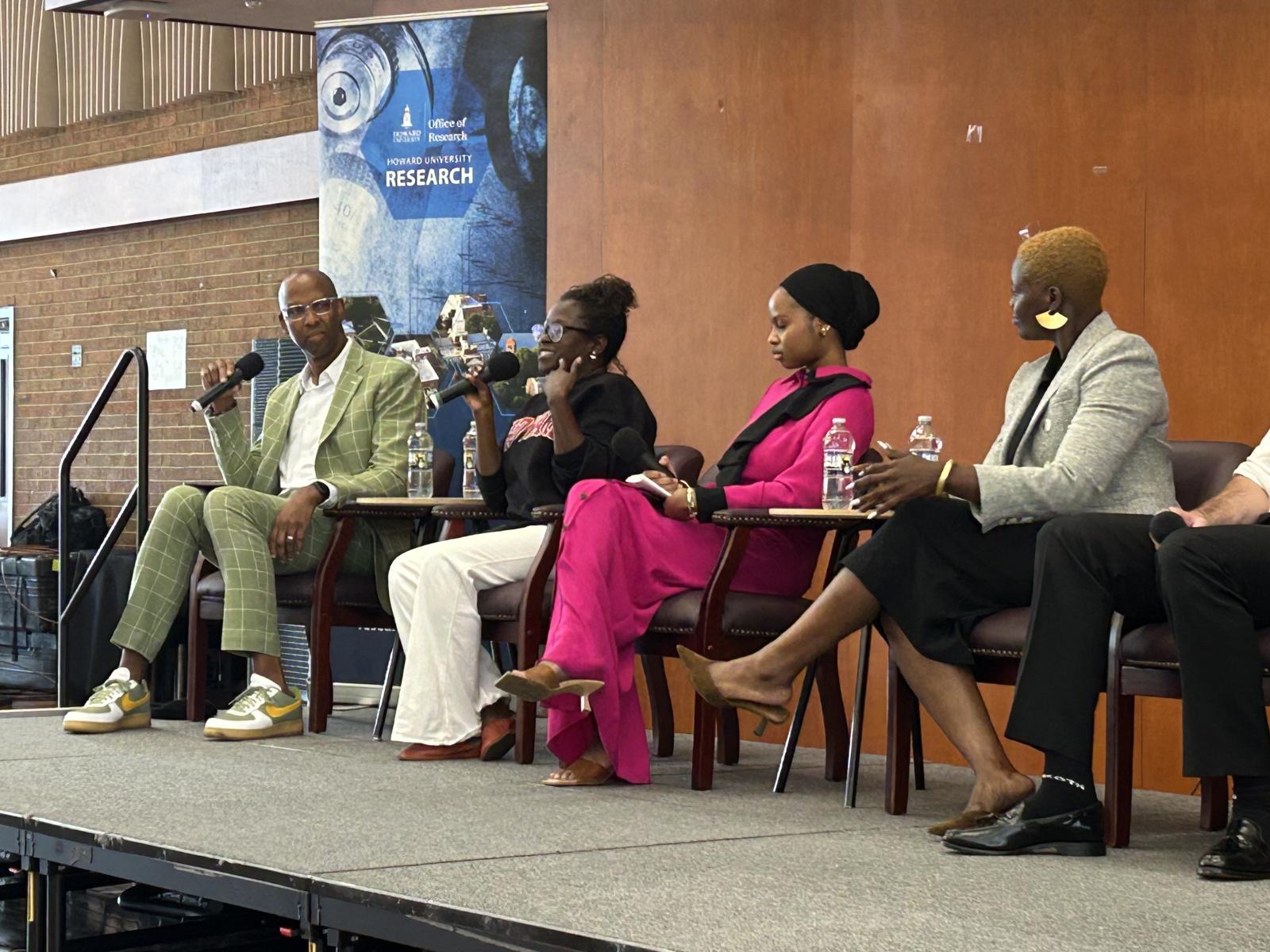
“Students were involved in creating these guidelines on fairness, accountability, and transparency on our research agenda. We intend to create a data consortium to save and protect our data from nefarious usage,” she explained.
The panel, moderated by Louis Stewart, head of strategic initiatives at NVIDIA, also included Howard alum Fatima Fall (B.S. ’23). Fall currently works at NVIDIA as a technical marketing engineer and informed students on how she started her career in tech.
“It started as a challenge for me because I didn’t have any background in tech,” she said. “I was curious about it and wanted to know more about it. Howard professors challenged me, and they gave me the confidence to get into the field. The more I gained skills from classes, internships, and programs the more I started thinking that if I kept pushing and learning I could actually have a place in this industry.”
The panel also included Howard alum and faculty member Dr. Anietie Andy (M.S. ’09, Ph.D. ’17), assistant professor of electrical engineering and computer science, and NVIDIA’s Tiffany Shumate and Carter Abdallah.
Featured photo courtesy of Adobe Stock Images (JHVEPhoto). Additional photos by Adriana Fraser, Howard University Office of University Communications.
Keep Reading
-
 Student Athletes
Student AthletesHoward Swimming and Diving Makes History with Dual NEC Championships
Feb 23, 2026 3 minutes -
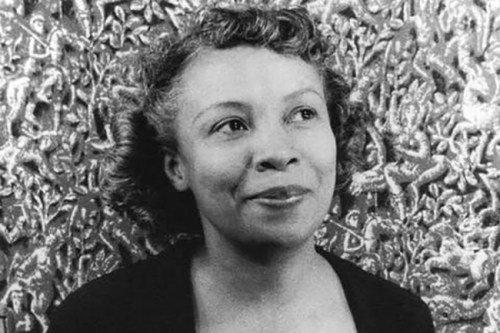 News
NewsThe Librarian Who Built the Home for Black Writing, and Other Alumni Who Have Changed Literature
Feb 23, 2026 6 minutes -
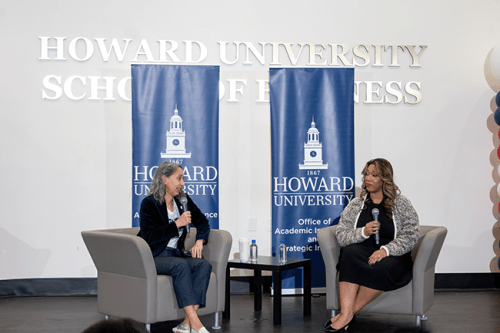 News
NewsHU-MasterCard Inclusive Growth Thought Leadership Lecture Series Kicks Off Howard’s 2026 Data Week
Feb 20, 2026 5 minutes
Find More Stories Like This
Are You a Member of the Media?
Our public relations team can connect you with faculty experts and answer questions about Howard University news and events.
Submit a Media Inquiry

